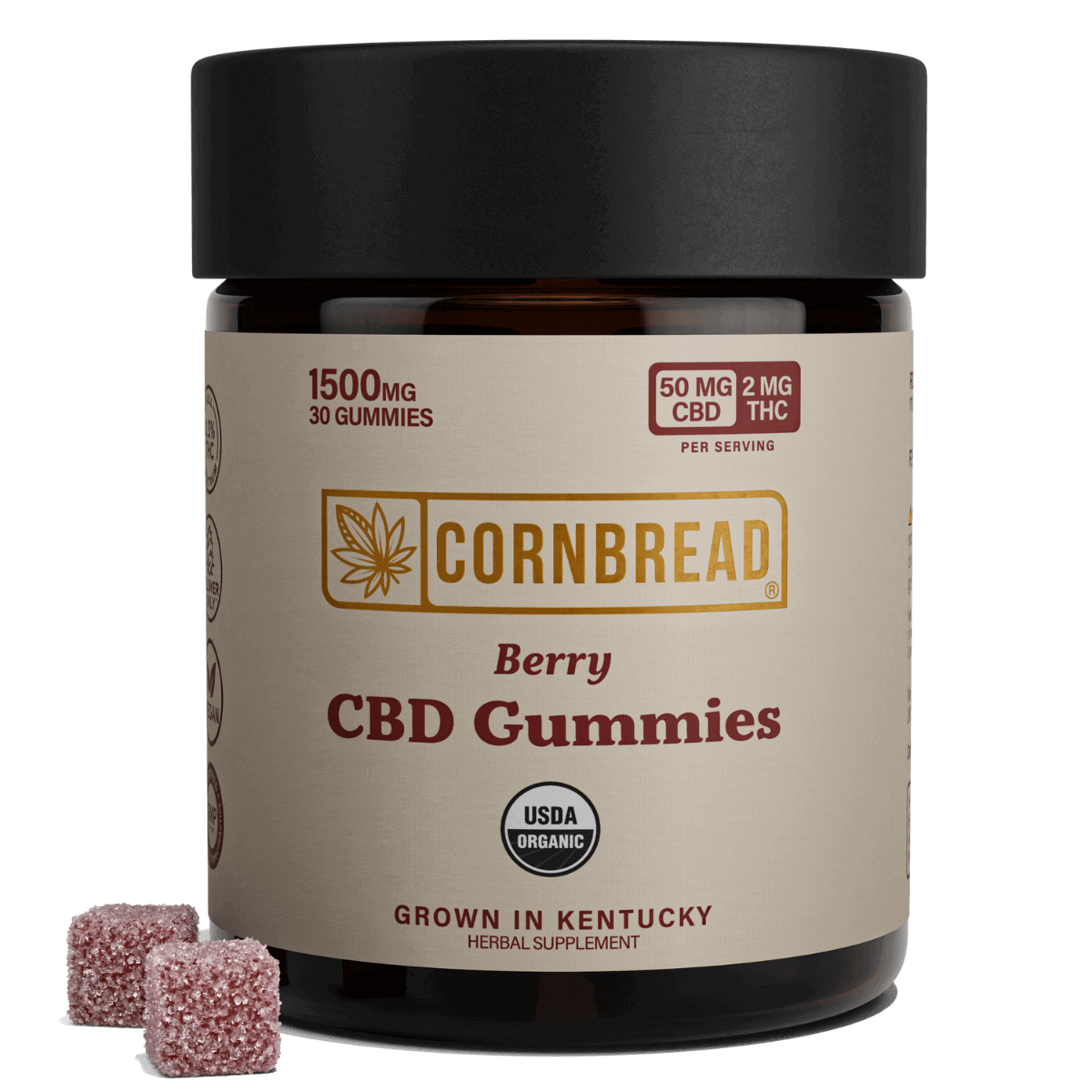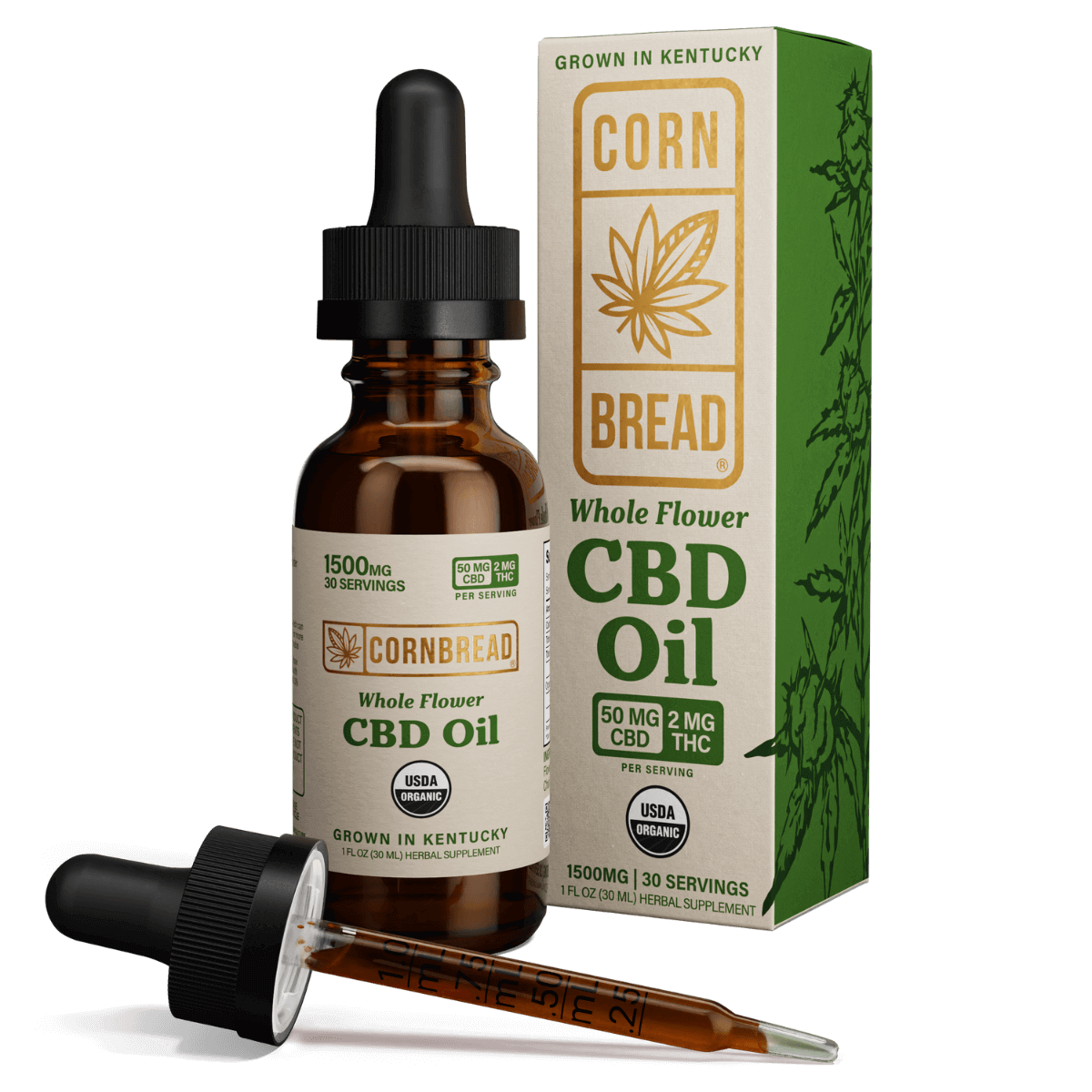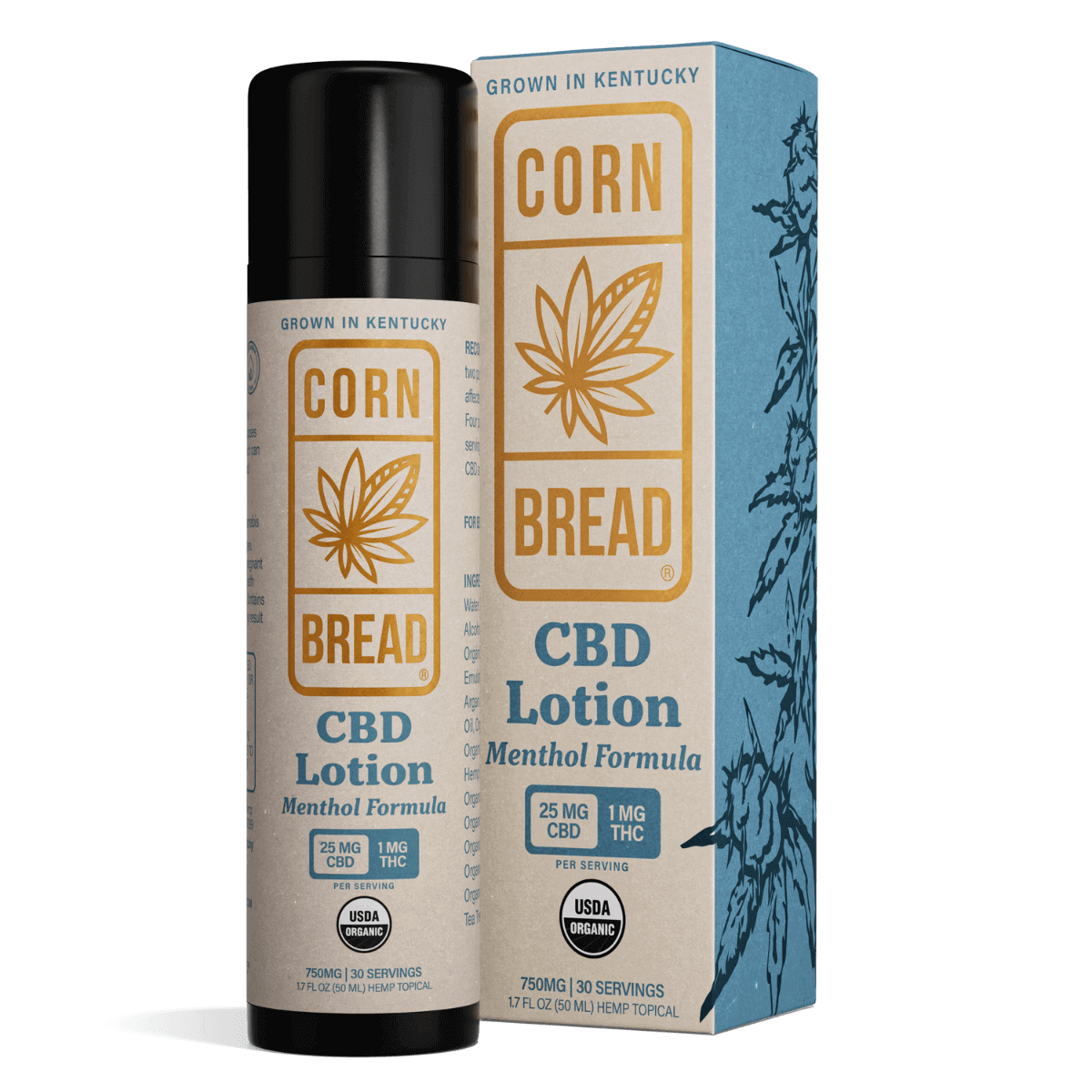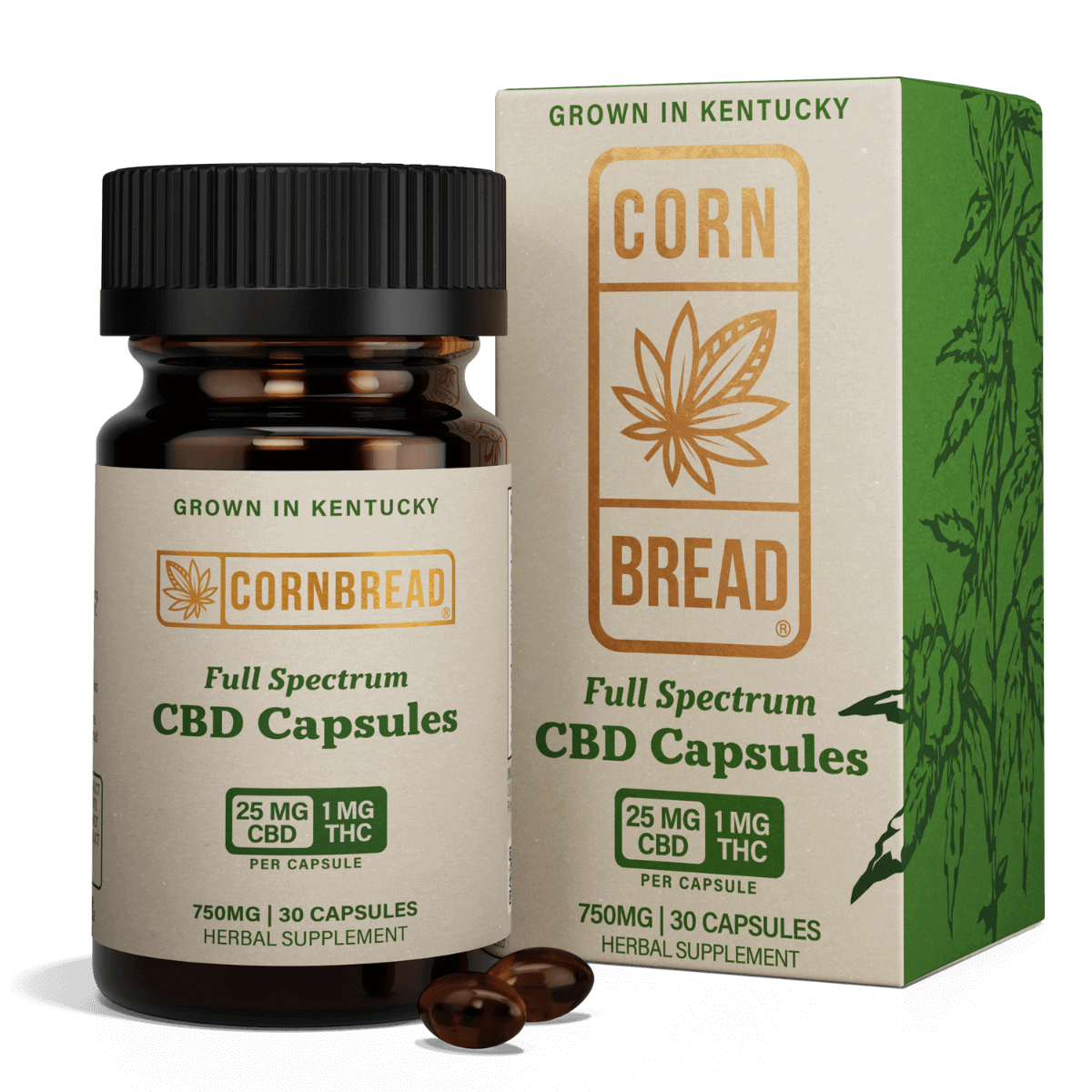Table of Contents
Introduction
Cannabidiol (CBD) is the most prevalent cannabis compound found in hemp — a kind of cannabis plant. Since the cultivation of hemp became federally legal in 2018, CBD-derived wellness supplements (like CBD oils, tinctures, and gummies) have taken the wellness industry by storm.
But as more and more people make the decision to start a CBD wellness regimen, one question keeps popping up: How long does CBD stay in your system?
It’s a valid question. CBD is legal, but THC (tetrahydrocannabinol) is still heavily regulated in most of the country. Some employers impose drug testing meant to “weed” out employees who have consumed THC. But how accurate are these tests, and will a CBD wellness supplement cause you to fail a drug test?
In this article, we’ll discuss how long CBD stays in your system, factors that affect this timeline, and whether or not CBD will trigger a positive drug test result, as well as other critical questions.
CBD vs. THC
Hemp and marijuana are each varieties of the cannabis plant. The big difference between the two is that hemp has more CBD, and marijuana has more THC. Both CBD and THC are “cannabinoids” — special compounds found in cannabis that interact with the body’s many systems. There are over 100 different cannabinoids present in hemp and marijuana and, while scientists still have a lot to learn about these special compounds, we do know that each cannabinoid appears to interact differently within the human body.
While hemp may have a higher concentration of CBD, it still contains small amounts of THC (as well as the other 100+ cannabinoids). According to the 2018 Farm Bill (the legislation mentioned earlier), hemp may not contain more than 0.3% THC.
But while 0.3% THC isn’t enough to bring about a high feeling, it may be enough to trigger a positive drug test.
How Long Does CBD Stay in Your System?
“Half-life” is the time it takes for a substance within the body to decrease by half. It takes approximately five half-lives1 before a substance completely leaves the body.
The half-life of CBD depends on how the CBD was taken and for how long it’s been taken.
If CBD has been consumed orally and regularly for a long period of time, the half-life is between two and five days (after consumption has ceased). This means it would take between ten and 25 days for CBD to leave the system.2
So, the half-life of CBD can vary significantly. And there are other factors, beyond the way CBD is taken, that can also impact half-life, further complicating the subject. These factors include:
-
The type of CBD
-
Your body weight and composition
-
Your metabolism
-
Your diet
Let’s take a closer look at each of these.
The Type of CBD
First, the CBD supplement type and delivery method are extremely important. For example, CBD that is smoked or vaped takes effect faster than edible CBD, but it also has a shorter half-life, leaving the body much more quickly.
Sublingual CBD Oils and Tinctures/Oromucosal Sprays
When you take CBD as a sublingual oil or tincture, or as an oromucosal spray, it is absorbed into the body via the mucous membranes in the mouth. This allows a portion of the CBD to be delivered directly to the bloodstream, bypassing the digestive tract.
CBD Edibles
Swallowing ingestible CBD products like CBD capsules causes the cannabinoids to pass through the digestive system before entering the bloodstream. That’s why CBD edibles and CBD gummies take the longest to work. It’s also why they take the longest to leave the body.
Topical CBD Creams and Gels
CBD creams and gels are the least bioavailable of all these options — meaning that little to no CBD actually ends up in the bloodstream. That's because cannabinoids like CBD have a difficult time penetrating the skin's water barrier.
Body Weight and Composition
CBD and other cannabinoids are lipid-soluble, which means they easily dissolve in fats as opposed to water. Once CBD enters your system, it tends to linger in your body’s fat cells. As a result, the presence of excess body fat could result in an extended half-life for CBD, as well as extended effects.
Metabolism
Like everything else we consume, CBD is eventually metabolized and eliminated from the body. Consumers who possess a faster metabolism could eliminate CBD faster than those with a slower one.
Diet
A study out of the University of Minnesota found that consuming a meal rich in healthy fats prior to taking CBD increased the bioavailability of the CBD.3 It was observed that CBD taken with a meal (as opposed to on an empty stomach) resulted in much higher levels of CBD in the body. This practice can extend the half-life of CBD.

How Long Does It Take for CBD Oil to Work?
How soon you feel the beneficial effects of CBD4 depends on how much CBD you take, how long you’ve been taking it, and how you take it.
You can typically expect to feel an effect about 15 minutes after vaping or smoking CBD. Topical products and edibles (such as CBD oil or CBD gummies) can take an hour or two to produce noticeable effects. If you’re just beginning a CBD regimen, it could take as long as two weeks for you to notice a difference, or possibly longer.
How Long Do the Effects of CBD Oil Last?
More research needs to be done to fully answer this question, but anecdotal reports suggest the effects of CBD generally last as long as six hours. For that reason, some CBD users like to break up their daily dose, taking portions of it throughout the day to bring about more consistent and lasting beneficial effects.
Can I Take CBD While Breastfeeding?
There’s not enough research to say whether it’s safe to breastfeed while taking CBD. The side effects of CBD on newborns and infants are unknown, so it's better to be safe and stay away from ingestible CBD products if you are breastfeeding or pregnant. If you want to use other CBD products (such as topical creams), consult with your primary healthcare provider beforehand.
Will CBD Make You Fail a Drug Test?
Yes, it’s possible that certain CBD products could result in a failed drug test.
Full-spectrum CBD oils, for example, contain all of the cannabinoids that are present in hemp, including a very small amount of THC. If you’re using a full-spectrum CBD product regularly as part of your wellness routine, it’s possible that the THC will be detected in a drug screening.
Even CBD isolate supplements, which contain pure CBD devoid of all other cannabinoids, may provide a false sense of security. Many drug testing labs use equipment that cannot distinguish between THC and CBD, which may cause false-positive drug test results. Essentially, even if an employee has consumed zero THC, they could face undeserved repercussions, or even termination, for failing a drug test.
CBD is a legal and safe option that offers many potential therapeutic benefits. Those who want to incorporate it into their wellness routines should be able to do so without putting their careers at stake. So, what can you do?
Workplace Drug Testing: What You Can Do
If you’re taking CBD wellness supplements and are working for a company that routinely or sporadically tests employees for THC use, here’s what you can do to protect yourself.
Communicate With Your Doctor
If you’re subject to drug screening, always get a written note from your doctor before you begin using CBD. This note should state that you need to take full-spectrum CBD oil.
Communicate With Human Resources
Take the note from your doctor to your Human Resources (HR) department and get a written note from them stating that HR understands you could test positive for THC as a result of taking a legal CBD product.
Anything short of getting permission in writing could lead to unnecessary problems at work, so be sure to take these steps first.
Request a More Accurate Test
If you’re taking legal hemp-derived CBD supplements, they should contain no more than 0.3% THC. Standard drug screening may not be able to distinguish between CBD and THC cannabinoids, but you can always request a more accurate drug test.
A test that detects CBD to THC ratios instead of simply the presence of cannabinoids will make it apparent that the result is due to the legal use of hemp-derived CBD. Be sure to explain to your HR department why you’re requesting a special test so they’re prepared for the expected results, and you can better avoid unnecessary repercussions.
Give CBD Time to Leave Your System
If you anticipate getting tested in the future and you have yet to (or failed to) acquire the official notes from your doctor and HR, you should stop using CBD for a month before your test date. This will ensure that all the cannabinoids are out of your system and will not trigger a positive result.
You shouldn’t have to choose between your personal wellness and your job and, hopefully, this won’t be a problem much longer. For now, if you’re worried about failing a drug test at work as a result of your legal CBD use, be sure to apply the practical tips above and see if your doctor and HR department will work with you to alleviate that risk.
Cornbread Hemp Full-Spectrum CBD Oil
If avoiding a positive drug test was as simple as taking CBD isolate or broad spectrum CBD (containing a variety of cannabinoids but little to no THC), then that’s what we’d recommend. Unfortunately, even CBD on its own can trigger a false-positive result.
It’s been observed that the small amount of THC present in full-spectrum CBD products, as well as the other cannabis compounds, help to amplify the beneficial effects of CBD — a phenomenon known as the “entourage effect.” Because of this, full-spectrum CBD is generally considered to be the most effective form of the cannabinoid. Thankfully, by following the steps above, you can be proactive about avoiding false positives while you’re taking a proactive role in your wellness.
At Cornbread Hemp, we understand the importance of an effective wellness routine. This is why we offer the highest-quality CBD products — made from the flower only, containing the full spectrum of cannabis compounds (including 2 mg of THC), and USDA-certified organic through every step of the process. Shop our CBD collection now.












 Log in
Log in




















